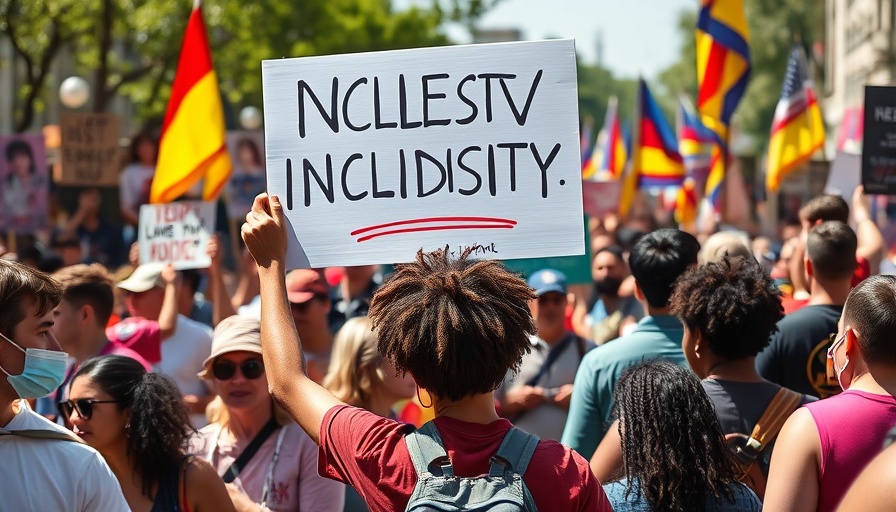
A Disturbing Sign: Responding to Racism in Politics
In a recent incident that has sparked outrage across Virginia, leaders have condemned a racist sign directed at Lt. Gov. Winsome Earle-Sears. The sign, which made offensive comparisons between transgender bathroom policies and segregation, has drawn widespread condemnation from various political figures and organizations. Virginia's political landscape has often been fraught with issues concerning race and identity, and this latest incident serves as a painful reminder of ongoing tensions.
The Significance of Lt. Gov. Winsome Earle-Sears' Role
As the first Black woman to serve as Virginia’s Lieutenant Governor, Winsome Earle-Sears embodies a significant shift in Virginia’s political narrative. Earle-Sears, who is also running for governor, has made waves with her firm stance on policies related to gender identity, particularly regarding bathroom access for transgender individuals. Her experiences as a prominent Black woman in a political arena often dominated by white males compound the impact of racially charged rhetoric against her.
Condemnation from Political Leaders
The attack against Earle-Sears was met with swift condemnation from both sides of the political aisle. Virginia Governor Glenn Youngkin described the sign as “disgraceful,” emphasizing that such displays have no place in a civil society. Figures from across the state legislature echoed these sentiments, demanding accountability and a united front against hatred and racism.
Historical Context: The Fight Against Segregation and Racism
Virginia’s history is deeply intertwined with issues of racism and segregation. The comparisons drawn by protestors invoke historical trauma that remains fresh for many in the community. Understanding this context is essential to grasping the gravity of such actions today. Virginia was one of the battlegrounds for civil rights, and the current rhetoric surrounding racial issues continues to provoke critical conversations about race, society, and politics.
Future Implications: Racism and Political Discourse in Virginia
The implications of this incident extend beyond Earle-Sears. It raises difficult questions about the state of political discourse in Virginia and whether it can remain respectful in light of such provocative acts. As the campaign for the governorship heats up, diverse perspectives will remain at the forefront of the political dialogue, shaping the future of Virginia and its policies on race and identity.
Counterarguments: Dissenting Views on Political Expression
While there is widespread condemnation of the sign's content, it’s important to acknowledge that some argue such political expressions fall under the protection of free speech. Critics of the backlash assert that political discourse should allow for provocative statements, no matter how offensive. This perspective, however, often clashes with the desire for inclusivity and respect among constituents, particularly those from marginalized communities.
Taking Action Against Racism
As communities grapple with these issues, it’s vital to foster dialogue that prioritizes understanding and respect. Organizations focused on civil rights and equality are ramping up efforts to promote inclusivity in political discussions. It’s essential for citizens to engage actively with these initiatives, ensuring that all voices are heard in a meaningful way.
In an era marked by divisive politics, Virginia must rise to the challenge of combating hatred and fostering unity. The future of its political landscape depends on collective action against racism and a commitment to inclusivity that honors the dignity of all individuals, regardless of race, identity, or political affiliation.
 Add Row
Add Row  Add
Add 




Write A Comment